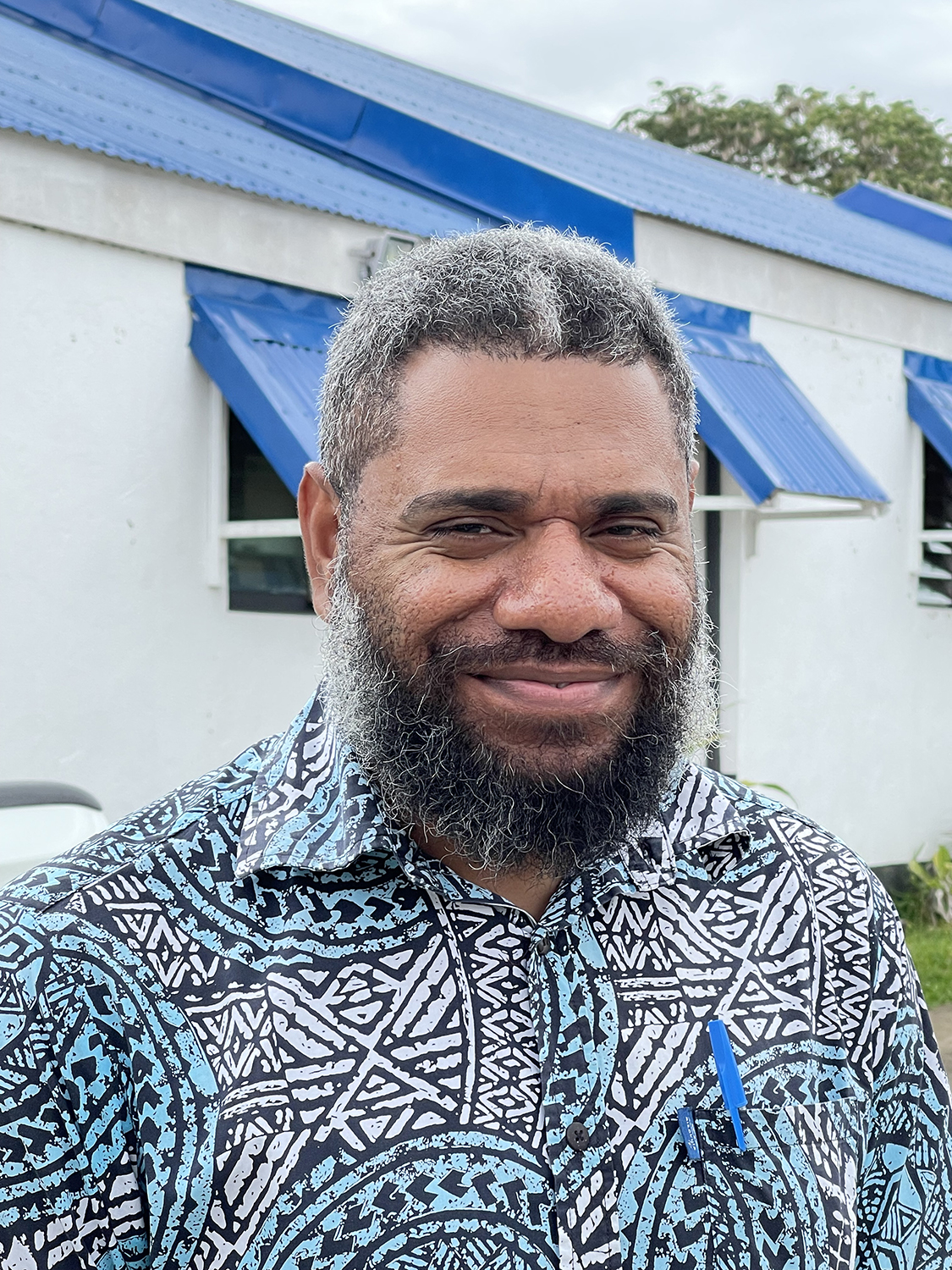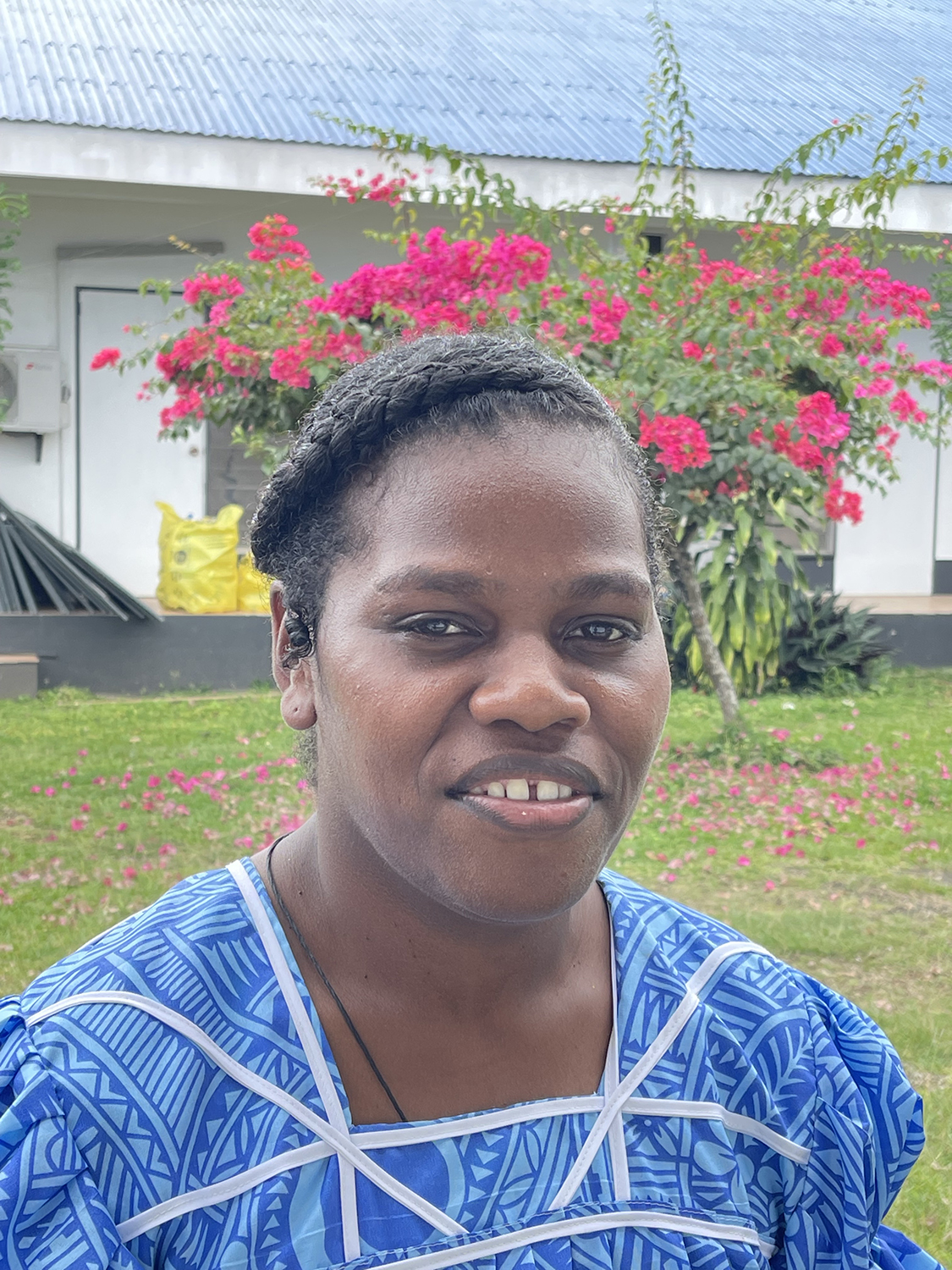In Vanuatu, simultaneous health crises in the past two years have highlighted the urgent need to protect and promote the mental health and wellbeing of everyone.
In addition to the impact of the COVID-19 pandemic, public health and safety in Vanuatu was also severely threatened by Tropical Cyclone Harold and a volcanic eruption on the island of Tanna in 2020. Measures to prevent the spread of the coronavirus, such as port closures and stay-at-home orders, affected the country’s ability to respond to these other health emergencies, adding to the challenges of providing support to people experiencing mental distress.
Forced to rely on local resources, the Ministry of Health, with the support of the World Health Organization (WHO), channelled limited resources towards vulnerable groups and empowered communities to provide the necessary support needed on the ground.
Finding the right words

Community engagement: Vanuatu psychiatrist Dr Jimmy Obed said a community-led approach to mental health is essential.
“With COVID-19 and Tropical Cyclone Harold, we saw a lot of people coming in with anxiety. But their description of anxiety is not your classic textbook presentation so it can be missed,” Dr Jimmy said.
“So, we have to try to find better ways to communicate. For example, health workers might ask in Bislama, the local language, ‘Is your heart heavy?’. And they say, ‘Yes, that is it’.”
Seeking help early
One of the first steps to promote mental health is to raise awareness and encourage the community to seek help early.
“People are usually very unwell before they seek help. They go through a lot of doors before they come to us,” said Dr Jimmy.
“We educate people about early warning signs, providing mental health first aid, and when people should come to us for help.”
When talking with the community, Dr Jimmy likes to highlight that “it is normal to feel distress during an emergency, but what matters is how we cope and support each other.”
Community engagement is crucial
In Vanuatu, communities are open to collaborating with mental health professionals as part of a community-led approach to providing psychosocial support.
“We’ve done a lot of community training, targeting chiefs, youth groups, women and churches. This helps ensure that the change is sustainable. Rather than help being externally driven, communities and their leaders have to take ownership of it.”
A grounds-up approach is crucial in the South Pacific nation with its population of 277,000 people on 80 islands dispersed across 1,300km of ocean. Vanuatu is often ranked among the most disaster-prone countries on earth reinforcing communities’ remoteness and reliance on their own resources.
No health without mental health

No health without mental health: Vanuatu mental health officer Norika Watt said being involved in family and community activities helps people deal with stress.
Vanuatu Ministry of Health national mental health officer, Norika Watt, says mental health is more than identifying and treating mental illness. Mental health must be embedded into the daily life of communities, in the places where people live, work, learn, play and thrive. This will contribute to reducing stigma and facilitate the involvement of different groups in mental health.
To promote mental health Ms Watt has the following piece of advice: “Go out with your family, stay active through sport, grow plants and garden, listen to music, be involved in community activities, and spend time doing things you love with the people you love. Avoiding social isolation will help clear your mind.”
WHO support for mental health and well-being
In Vanuatu, the WHO Country Office has been working closely with the government to promote and protect mental health and well-being through a community-led approach.
Dr Eunyoung Ko, Head of the WHO Vanuatu Office, Port Vila Vanuatu said: “It’s positive to see the emphasis on communities in Vanuatu. This will be key to making mental health care for all a reality, which is the theme of World Mental Health Day in 2021.”
Health emergencies, such as the pandemic and natural disasters, often cause a significant level of mental distress. But they are also opportunities to build back better and transform our approach to mental health care placing communities at the centre.
“WHO is committed to supporting local health teams and empowering communities who are best placed to identify and implement sustainable solutions for mental health”, WHO spokesperson said.

Vanuatu mental health nurse Lawrence Hinge Leo uses knowledge from a WHO-supported training programme to support people in isolation after returning to the country.

Vanuatu mental health nurse Norah Marie Simon, trained in a WHO-supported programme, helps provide psychosocial support by phone to returnees in post-travel isolation.
